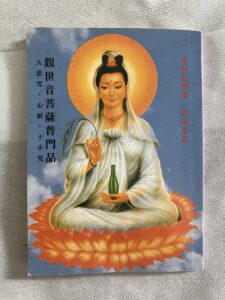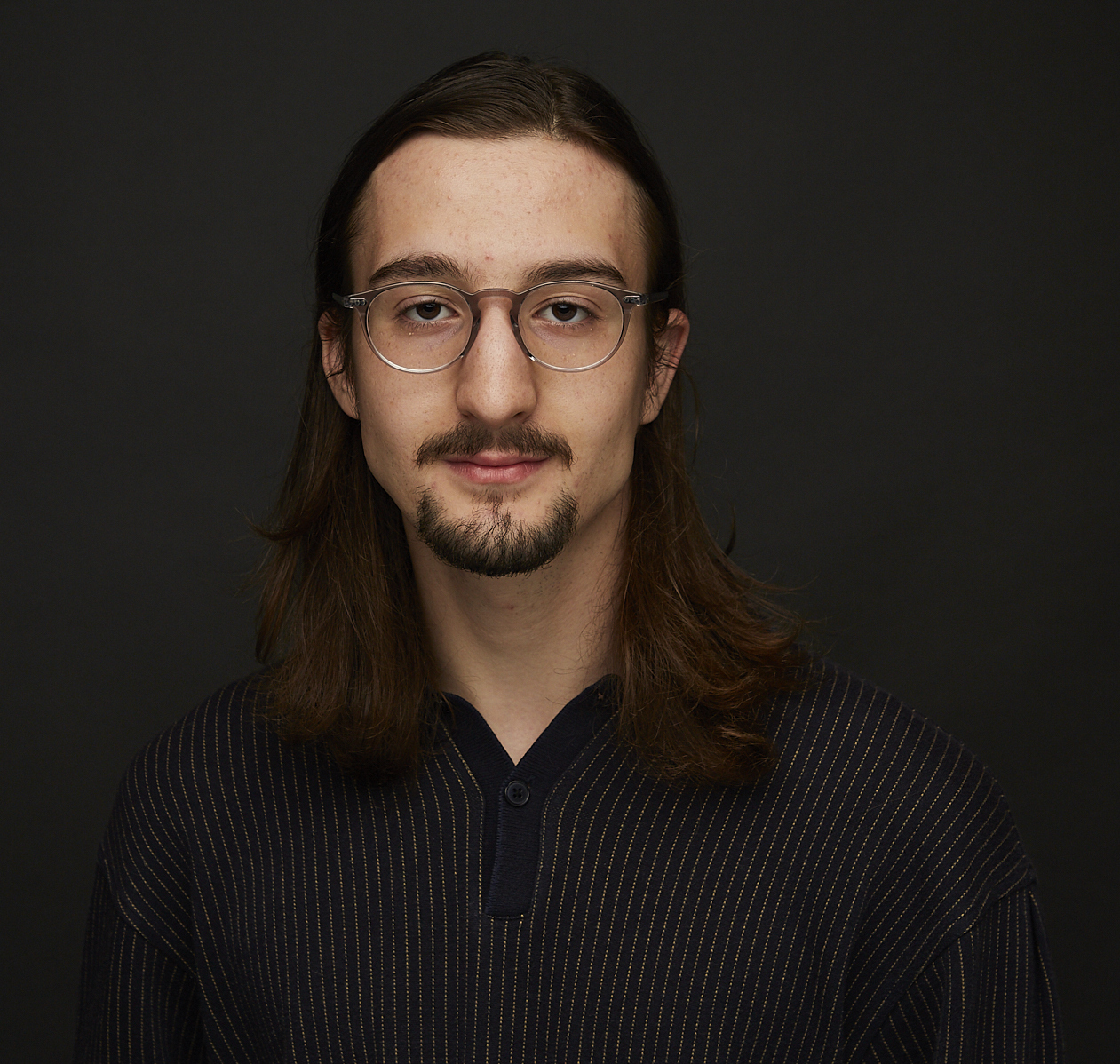
This is a handheld size book of Buddhist mantras in Chinese that I got from this guy Richard, who I met while studying abroad in Taiwan, as well as an interactive map outlining the trips we took, as described later in this post.
I was studying at Tamkang University, in Tamsui, which is a port city at the northern tip of Taipei. It has a very different character and history from Taipei’s core. For much of its history it had been Taiwan’s northern entrance and most popular port, a place where Canadian missionaries, Japanese and Portuguese merchants, and other international trades converged. As it was early in my stay there, I decided one morning to go down to the harbor and explore the area, knowing faintly of these unique and disparate elements. As noted in my blog entry about music, it is important to reflect that, for personal reasons, I was searching for meaning in many ways. I had been interested in different religions and learning about them. As I made my way down towards the harbor, I came across this Daoist temple featured prominently on the harbor’s main boulevard. It was closed, so I decided to saunter around it. The old character of the city is very much intact with a lot of narrow and old streets; I found an alley behind the temple, with a shrine at its base. The shrine was kind of like a little house. Inside sat a carved wooden statue of an icon with a long hair and beard, incense holders, and some plaques around it in Chinese.
I turned off into the alley, climbing up the inclined steps, and as I rose, saw a nice view out onto the harbor. A large rock was off to the side of the path, so I decided it’d be a nice place to take a seat and rest for a moment. I then pulled up the Diamond Sutra, a popular Buddhist sutra which I had saved on my phone a couple of days prior. Looking back, I think at this time I was very much trying to cultivate a holy and religious sense, searching for peace and fulfillment. After reading for a few moments, a man walked down the alley, coming upon me, smiling, and happy to see me. He was roughly mid-40s, a medium build, with short black hair slicked to his right side. He wore a gray polo shirt and black shorts. His happiness was quite palpable, and he asked me how I was doing. In Chinese, he offered to go and buy me some breakfast and introduced himself along the way. In the Chinese I could understand, he explained that he was also exploring the area, and that he often took trips on the weekends. At a small storefront he bought me some porridge. I explained that I had been reading a Buddhist text, and he pulled out a gold, teardrop-shaped pendant of Guanyin. Guanyin is a Boddhisatva, a kind of “saint” / enlightened figure working for the awakening and compassion of all living beings, in Buddhism, and who is regarded as the physical embodiment of compassion. On one side was an emblem of Guanyin and the other the characters for the mantra “Na Mo Guan Shi Yin Pu Sa.” This mantra more or less means “calling upon Guanyin for peace and compassion.” In the breakfast place he chanted the mantra and tried to explain it as best he could through my partial understanding and Google translate. While abroad I was trying to be receptive and go with the flow, because I wanted to engage fully in the experience. We exchanged LINE contact (a popular messaging app in Taiwan) and bid farewell for the day.
But I continued to meet and hang out with Richard throughout my stay in Taiwan. And this book of Buddhist mantras is one such gift I received from him. He was always eager to meet and hang out. At certain times I was unsure of how to take this and felt that he may have been conning me. On one separate occasion we took the high-speed rail to the west of the country to meet up with his college friend who had become a police officer. We went to another Daoist temple called 文昌祠. Richard let me know the temple was for the God of Literature. I had a test coming up, so I prayed for that. We then walked over to his friend’s office in the police station. In the midst of all this police equipment and computer screens, we talked about Buddhism and life over some green tea, which was apparently very expensive. Later that night, we all went to dinner at a Buddhist-themed vegetarian restaurant, and they graciously paid.
At this point I felt a bit uneasy because of their outward kindness and how far away from school we’d gone. Was this a normal kind of kindness shown to foreigners? Are these guys just really compassionate, enlightened beings? Or is this leading to some kind of con? Getting back to Taipei via high-speed rail, all the buses had stopped running. At this point Richard asked me to buy a cab back to his place where I could stay the night. I obliged but was definitely hesitant. We’d been warned by the program’s supervisors that we could not sleep anywhere, other than our dorms, for the sake of safety. In some ways I thought this was too stringent though, and kept us from engaging outside of the program’s lines. However, in the cab ride back, I realized that I had spent a lot of money on transportation and food for the day. Nonetheless, we got back to his place. It was a small apartment shared with his parents. A large six-foot tall lacquer Buddhist shrine greeted you on entering the living room. He let me stay in a sparse guest room down the hall. It just had a futon, dresser, and lamp. Sitting on the bed, I was still a bit angsty, so texted the program supervisor about my situation. He strongly urged I return to campus, or I would face possible suspension. I was really torn but decided it was best to call an Uber back. In some ways I felt that I let down Richard, with all his kindness, but I also thought that I placed too much trust in him and the situation was shaping up in an odd way with all the favors and money spent.
Although this experience definitely changed our relationship past this point, there was something authentic in our initial religious connection. Although more background and information would be needed to explain this, in a certain way we were both individuals searching for meaning, traveling around for fulfillment and experience. The idea of religion may have been an in for him to take advantage of me in certain ways, but it’s not as though he wasn’t Buddhist. It’s hard to categorize someone strictly in the value systems of good/bad, which I think often stems from my Western outlook. Saying only that would not get at the nuance of this story. The culmination of all these experiences with Richard, however, does reveal his openness and willingness to share in these parts of his life and perspective.

Leave a Reply